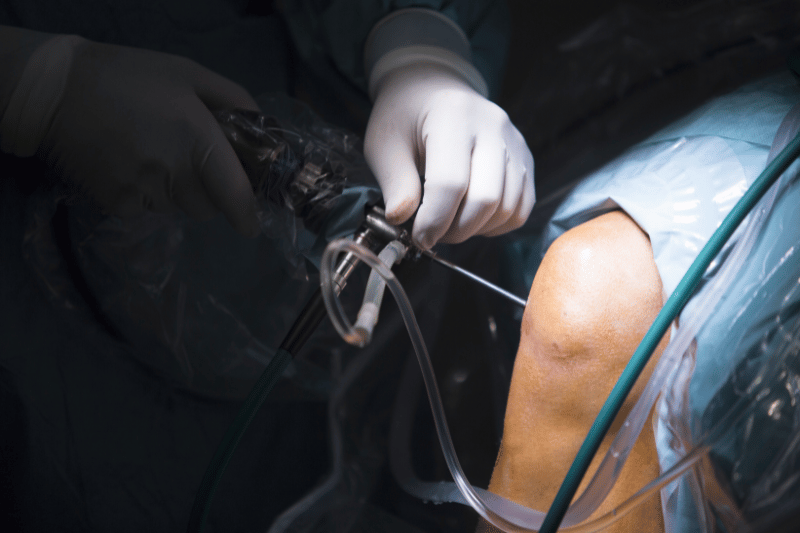
If you are looking for an orthopedic hospital in Nagpur, you might be overwhelmed by the number of options available. How do you know which one is the best for your condition, budget, and preferences? In this blog post, we will share some tips on how to choose the best orthopedic hospital in Nagpur for your needs.
1. Check the reputation and accreditation of the orthopedic hospital in Nagpur.
You want to make sure that the orthopedic hospital in Nagpur you choose has a good reputation and is accredited by a recognized authority. This will ensure that the hospital meets the standards of quality, safety, and ethics. You can check the reputation and accreditation of the orthopedic hospital in Nagpur by looking at their website, online reviews, testimonials, awards, and ratings.

2. Compare the services and facilities of the orthopedic hospital in Nagpur.
Different orthopedic hospitals in Nagpur may offer different services and facilities for their patients. You want to choose the one that has the most suitable and comprehensive services and facilities for your condition. For example, some of the services and facilities you may want to look for are:
– A team of qualified and experienced orthopedic surgeons, doctors, nurses, and therapists
– A range of orthopedic treatments and procedures, such as joint replacement, spine surgery, sports medicine, arthroscopy, fracture care, and physiotherapy
– A well-equipped and hygienic operation theater, ICU, wards, and rooms
– A modern and advanced diagnostic and imaging center, such as X-ray, MRI, CT scan, and ultrasound
– A dedicated and personalized post-operative care and rehabilitation program
– A patient-friendly and affordable billing and insurance policy
3. Visit the orthopedic hospital in Nagpur and consult with the doctors.
The best way to get a feel of the orthopedic hospital in Nagpur and its doctors is to visit it personally and consult with the doctors. This will give you an opportunity to ask questions, clarify doubts, and get a second opinion. You can book an appointment online or call the hospital to schedule a visit.
Orthopedic Care Nagpur:
Elevating Health Standards in Central India
Orthopedic care in Nagpur has witnessed remarkable advancements, shaping the healthcare landscape in Central India. With a focus on precision and patient-centric approaches, the orthopedic facilities in Nagpur have become a beacon of hope for those seeking comprehensive musculoskeletal treatments.
Orthopedic Care Nagpur:
A Paradigm Shift
The evolution of orthopedic care in Nagpur signifies a paradigm shift in the region’s healthcare dynamics. The integration of cutting-edge technologies and a commitment to delivering quality care have catapulted Nagpur onto the map as a hub for orthopedic excellence.
Navigating Nagpur’s Orthopedic Landscape
Nagpur boasts a diverse array of orthopedic care facilities, each dedicated to addressing unique musculoskeletal challenges. From joint replacements to sports injuries, the city’s orthopedic specialists employ a holistic approach, ensuring that patients receive tailored and effective treatments.
Orthopedic Care Beyond Boundaries
In Nagpur, orthopedic care extends beyond the traditional boundaries. With a multidisciplinary approach, healthcare providers collaborate seamlessly to offer integrated solutions. This synergy ensures that patients experience comprehensive care that considers not only the immediate concern but also long-term well-being.
Technological Marvels: Shaping Orthopedic Interventions
Technological marvels have played a pivotal role in reshaping orthopedic interventions in Nagpur. State-of-the-art diagnostic tools, robotic-assisted surgeries, and minimally invasive procedures have become standard offerings, enhancing precision and reducing recovery times.
Unraveling the Threads of Orthopedic Excellence
The journey of orthopedic excellence in Nagpur involves intertwining various threads, each contributing to the city’s healthcare tapestry. From specialized orthopedic surgeons to rehabilitation experts, Nagpur’s healthcare ecosystem collaborates seamlessly to ensure a patient’s journey from diagnosis to recovery is smooth and effective.

Orthopedic Care Nagpur:
A Commitment to Timely Solutions
In the realm of healthcare, time is often of the essence. Nagpur’s orthopedic care facilities have recognized this critical aspect, placing a firm commitment to delivering timely solutions. The integration of efficient processes and streamlined workflows ensures that patients receive prompt attention without compromising the quality of care.
Nurturing Health Partnerships in Nagpur
Orthopedic care in Nagpur thrives on robust partnerships. Collaborations between healthcare institutions, research facilities, and educational establishments create an environment where innovation flourishes. This commitment to continuous improvement ensures that Nagpur remains at the forefront of orthopedic advancements.
Orthopedic Care:
A Comprehensive Exploration of Musculoskeletal Health
Orthopedic care is a multifaceted discipline that encompasses the diagnosis, treatment, and prevention of various disorders affecting the musculoskeletal system. This intricate system comprises bones, joints, ligaments, tendons, and muscles, collectively ensuring the body’s structural integrity and facilitating movement. In this extensive exploration, we will delve into the key aspects of orthopedic care, providing an in-depth understanding of the conditions treated by orthopedic specialists, the significance of early intervention, and the transformative impact of evolving technologies on the future of orthopedics.
Understanding Orthopedics:
The Essence of Musculoskeletal Well-being
At the core of orthopedic medicine lies a holistic approach to addressing an extensive array of musculoskeletal issues. Orthopedic specialists are trained to navigate through the complexities of conditions that affect the body’s structural framework. Whether it’s a sports-related injury, a degenerative condition, or trauma-induced complications, these specialists bring expertise in diagnosing and treating a spectrum of ailments.
A pivotal focus within orthopedics is joint health, considering that joints serve as the vital connectors between bones, facilitating movement and flexibility. Conditions such as arthritis, characterized by joint inflammation, can significantly impact an individual’s quality of life. Orthopedic experts employ a diverse range of treatment modalities, ranging from conservative approaches like physical therapy and medications to surgical interventions like joint replacement, aiming to alleviate pain and restore optimal joint function.

Common Orthopedic Conditions and the Spectrum of Treatments
Arthritis:
Arthritis, a prevalent orthopedic condition, manifests in joint inflammation. Osteoarthritis, resulting from the gradual wear and tear of joint cartilage, contrasts with rheumatoid arthritis, an autoimmune disorder where the body’s immune system targets its joints. Tailored treatment plans by orthopedic specialists are crafted based on the specific type of arthritis and its severity, acknowledging the nuanced nature of these conditions.
Tendon and Ligament Injuries:
Injuries to tendons and ligaments often stem from sports activities, accidents, or repetitive motions. Orthopedic care addresses these injuries through a combination of rest, physical therapy, and, in severe cases, surgical repair. A comprehensive understanding of the mechanics of these soft tissues is crucial for effective treatment and rehabilitation.
Fractures and Trauma:
Orthopedic surgeons play a pivotal role in treating fractures and traumatic injuries to the musculoskeletal system. From the precise setting of broken bones to the execution of complex reconstructive surgeries, these specialists aim to restore both function and aesthetics. Advances in surgical techniques, including minimally invasive procedures, contribute to shorter recovery times and enhanced patient outcomes.
The Imperative of Early Intervention
A cornerstone of effective orthopedic care lies in timely intervention. The detection and proactive addressing of musculoskeletal issues in their nascent stages can prevent the progression of conditions and significantly enhance the success of treatment. Regular check-ups, especially for individuals with risk factors such as a family history of musculoskeletal disorders or engagement in high-impact sports, are paramount for early detection and intervention.
Early intervention not only augments the likelihood of successful outcomes but also minimizes the impact on an individual’s daily life. Non-invasive treatments, such as physical therapy and medications, are often more effective when initiated early, helping individuals manage pain and maintain mobility without resorting to more invasive procedures.

Technological Advancements Shaping Orthopedics
The landscape of orthopedics has been transformed by remarkable technological advancements that have revolutionized both diagnosis and treatment methods. From cutting-edge imaging techniques to innovative surgical tools, these technological marvels contribute to more precise and minimally invasive procedures, ultimately benefiting patients in terms of reduced pain, shorter recovery times, and improved overall outcomes.
Imaging Technologies:
Advanced imaging technologies, such as Magnetic Resonance Imaging (MRI) and Computed Tomography (CT) scans, provide orthopedic specialists with intricate insights into the musculoskeletal system. These tools not only aid in accurate diagnosis but also empower specialists to formulate targeted and personalized treatment plans, acknowledging the unique characteristics of each patient’s condition.
Robot-Assisted Surgery:
Robot-assisted surgery stands as a transformative development in orthopedics. The integration of robotic systems enhances the precision and control of surgical procedures, particularly evident in joint replacement surgeries. This technology allows surgeons to tailor procedures based on the distinct anatomy of each patient, resulting in improved implant placement and overall surgical outcomes.
Biologics and Regenerative Medicine:
The emergence of biologics, including stem cell therapy and platelet-rich plasma (PRP) injections, heralds a new era in orthopedic treatment. These regenerative therapies harness the body’s natural healing mechanisms, promoting tissue repair and regeneration. While ongoing research continues to refine these approaches, early results showcase their potential in enhancing the healing process for specific orthopedic conditions.
If you want to know more about our orthopedic hospital in Nagpur, you can visit our website, call us, or email us. You can also book an appointment online or walk-in to our hospital. We are always ready to serve you and help you achieve your orthopedic goals. Thank you for choosing Orthopedic Hospital in Nagpur as your orthopedic partner. We hope to see you soon.
“`
What are some common orthopaedic surgeries?
– Joint Replacement: For conditions like osteoarthritis, hip or knee replacement may be necessary.
– Arthroscopy: This minimally invasive procedure involves inserting a camera to diagnose and treat joint problems.
– Fracture Repair: Surgical intervention may be required to set and stabilize broken bones.
– Spinal Fusion: To treat spinal issues like degenerative disc disease or herniated discs.
– Soft Tissue Repair: Surgeries for repairing tendons, ligaments, or muscles, often after sports injuries.
How can I prevent orthopaedic injuries?
– Maintain a Healthy Weight: Excess weight puts stress on joints, increasing the risk of injuries.
– Proper Nutrition: A diet rich in calcium and vitamin D supports bone health.
– Warm-Up and Cool Down: Before and after exercise to prepare and recover muscles.
– Use Proper Equipment: Wear appropriate gear and footwear for sports or physical activities.
What are some common orthopaedic conditions?
– Rheumatoid Arthritis: An autoimmune disorder causing joint inflammation.
– Fractures: Breaks in bones, which may require surgical intervention.
– Tendonitis: Inflammation of tendons, often due to overuse or repetitive motion.
How can I find a good orthopedic surgeon near me?
– Research Credentials: Check the surgeon’s education, training, and board certification.
– Read Reviews: Online reviews can provide insights into patient experiences.
– Consultation: Schedule a consultation to discuss your condition and evaluate the surgeon’s approach.
Remember, individual cases may vary, and it’s crucial to consult with a healthcare professional for personalized advice based on your specific situation.


